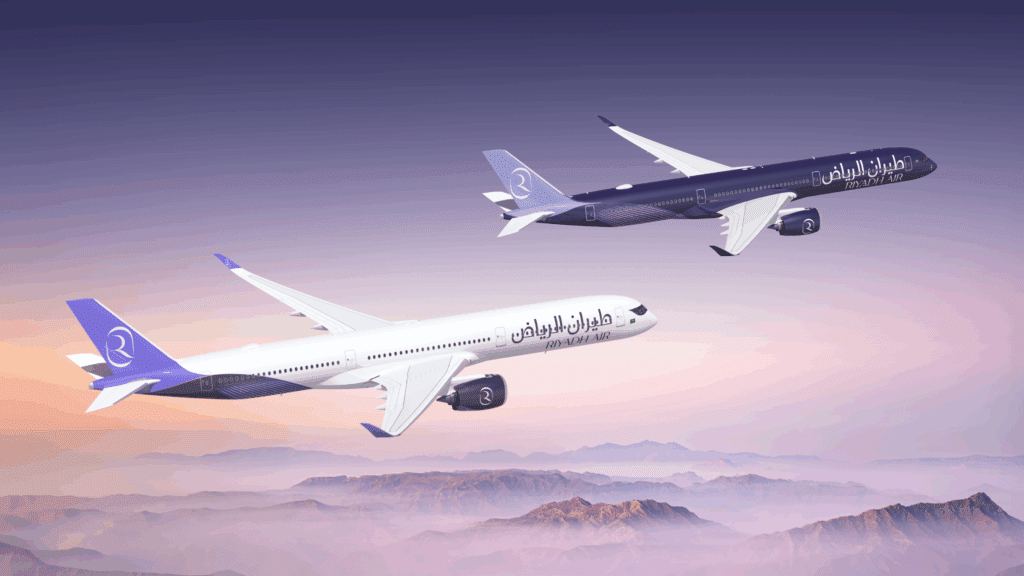
The signing ceremony, held at Le Bourget, was attended by H.E. Yasir Al‑Rumayyan, PIF governor and chairman of Riyadh Air; Christian Scherer, Airbus’s commercial aircraft chief; and Tony Douglas, CEO of Riyadh Air. Riyadh Air will be the first carrier in Saudi Arabia to deploy the A350‑1000, aligning with the kingdom’s Vision 2030 plan for enhanced global connectivity and tourism, which aims to carry 300 million air passengers annually by 2030.
The A350‑1000, Airbus’s flagship long-haul jet with more than 16,000 km range, offers improved fuel efficiency and comfort. Its capability to operate with up to 50 per cent sustainable aviation fuel —and full SAF compatibility by 2030—reinforces Riyadh Air’s commitment to sustainability. At the end of May 2025, Airbus had received over 1,390 firm orders for the A350 family, including 657 deliveries already in service.
Riyadh Air is gearing up to launch later this year, with its first commercial flights anticipated in 2025 following receipt of its Air Operator’s Certificate in April. The A350 addition complements its existing order book, which includes 60 Airbus A321neos and 72 Boeing 787‑9s, reinforcing its status as one of the fastest airline start-up trajectories in recent history. The new jet deal expands its total fleet commitment to 182 aircraft.
Tony Douglas characterised the agreement as “an important statement of intent”, stressing its role in supporting expansion to over 100 global destinations by 2030. He highlighted the order’s contribution to creating 200,000 direct and indirect jobs and adding nearly US $20 billion to non‑oil GDP. Yasir Al‑Rumayyan said the A350‑1000 fleet would strengthen Riyadh’s role as a global aviation hub, especially ahead of major events such as Riyadh Expo 2030 and the FIFA World Cup 2034.
Airbus’s Christian Scherer welcomed the deal, noting the model’s “unrivalled efficiency, range and passenger comfort”, praising Riyadh Air’s “bold vision” and commitment to innovation and decarbonisation. Industry observers attribute the order to Airbus’s ability to supply long-haul wide-body jets more readily than narrow-body variants, which are constrained by engine bottlenecks.
The deal also enhances Saudi Arabia’s broader aviation strategy. AviLease, another sovereign-backed entity, simultaneously announced an order for 30 A320neos and 10 A350 freighters, underscoring the kingdom’s drive toward becoming a regional air transport leader. While Boeing scaled back its presence following an Air India 787 crash, Airbus capitalised with record sales at Paris.
As Riyadh Air prepares for its maiden flights, the A350‑1000 order underscores its ambition to offer cutting-edge, sustainable, and globally connected service. It also reflects the kingdom’s strategic shift toward diversifying its economy and building a world-class aviation ecosystem—anchored by key infrastructure, fleet investment, and high-profile air events on the horizon.
Topics
Saudi Arabia
